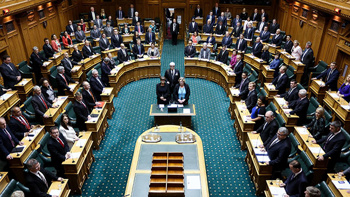As you know, truancy has been a topic of some discussion in the last week, especially with Associate Education Minster David Seymour's plans to get kids back into class.
I've been puzzling over it, especially since it popped up last week, over why it is that we have this truancy problem and why we have parents on both ends of the parenting spectrum who are as casual as they are about school.
Why have we got what I would consider to be delinquent parents, who just don't care if the kid goes to school?
And why have we also got parents who you would consider to be caring, given they're taking the kids on a holiday to Fiji- why are they happy for the kids to bunk school for a treat like this?
How do we explain these quite different groups of parents both having such a casual attitude?
And this morning, I realised what the problem is. Neither of those groups of parents see real value in school.
And both of them are right to some extent, aren't they?
NCEA is a joke qualification where you can’t really measure anymore where a child sits in their understanding of a subject. You have no idea if your child is 56 percent proficient at maths or 76 percent, and there’s a big difference.
Even at younger levels, there are plenty of kids not learning to read and write and do sums at a level they should be for their age. Only slightly more than half the kids at a recent year 10 mock reading assessment passed. Which means nearly half failed, that's massive.
So when the parents think it's not a big deal if Johnny misses a week of school, or a couple of days of school - are they wrong? Probably not. Because Johnny's not learning that much anyway.
What this means is that forcing the kids back to class is only one half of the solution. The other half is probably more important, which is to make that class time count.
Fortunately, this Government has plans to do that.
They've already told primary and intermediate schools to make sure there’s an hour of reading, writing and maths every day, they’ve taken the phones out of the classroom, and they've set a target of 80 percent of Year 8 students to be at or above the expected curriculum level for their age in reading, writing and maths.
But they’ve just delayed the NCEA changes by two years. To be fair, it sounds like it was out of their hands and the schools weren’t ready to implement it. But that’s at least two years away from being fixed.
So absolutely, the Government is 100 percent right to force the kids back to class. But then there has to be value towards those classes- and that’s the harder bit isn’t it?
LISTEN ABOVE
Take your Radio, Podcasts and Music with you









